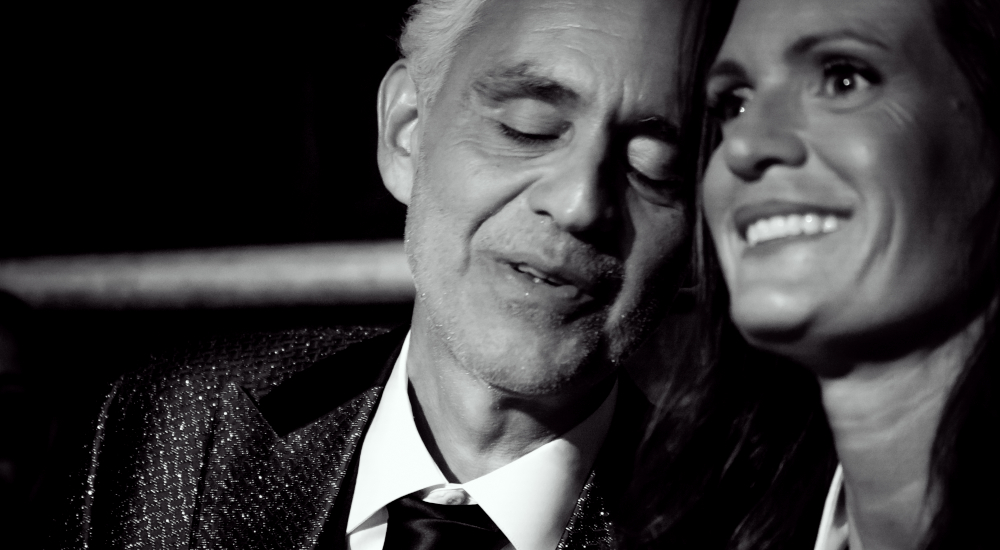It's pretty much universally agreed that Andrea Bocelli has one of the greatest voices of any musician. He's a true one-of-one, and fans will find plenty to love in this documentary about his life. If you're not a fan, you'll probably become one, even if this is about as straightforward as they come.
Because I Believe covers Bocelli's early life in Tuscany, working on the family farm. He was visually impaired even as a child, being sent off to a boarding school for kids with similar challenges. An accident during a football match took away his sight for good. Even so, he honed his talents throughout his teenage years. Like many other performers before him, he gravitated towards music to impress the opposite sex.
But even with undeniable ability, success took a long time to find him. He spent much of his post-school years performing in piano bars and restaurants, making just enough to get by, but never thriving. After chance encounters with some of Italy's biggest musicians, and a victory at the Sanremo Music Festival, his career took off.
The film speeds through some of his down periods, including difficult relationships with family members, a divorce, and a split with a manager. But director Cosima Spender wisely doesn't dwell on Bocelli's blindness, instead sharing his experiences with depression and anxiety, as well as his love of horses. It's pretty much impossible not to root for this guy.
Sprinkled throughout are great performances, from his hometown in Tuscany to Madison Square Garden. The montage set to "New York, New York" is easily a highlight of the film. Bocelli receives praise throughout for a voice that bridges pop and opera, even though he was harshly judged by some of the old guard of the Italian fine arts world. He may not have adhered to tradition, but he gained millions of fans the world over.
Andrea Bocelli: Because I Believe certainly doesn't reinvent the wheel. At times it even borders on hagiography. But it's solidly constructed. By focusing on Bocelli's supreme talent and humble personality, the film is quite enchanting.

